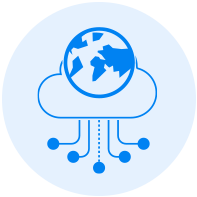
Rescue Your Data from an Olympic-Sized Disaster
Urjanet Inc | August 4, 2016 | Energy & Sustainability
As athletes and sports fans around the world gear up for the 31st annual Summer Olympics, the atmosphere around Rio de Janeiro is unusually tense. With subway lines and event structures still unfinished, Zika virus and a ‘super bacteria’ suddenly discovered, and political turmoil and economic strain bubbling under the surface, problems abound for Brazil. Yet the most striking factor in all these issues is that many of them, at least the infrastructural ones, could have been avoided with proper planning and use of data.
Take transportation for example. People are predicting huge traffic jams every day during the Games. Even when finished (which isn’t a certainty), subway lines will not deliver spectators all the way to the stadium; people will then have to transfer to a bus. The government has pledged to open exclusive transportation lanes in case of an emergency, but this could further exacerbate gridlock. If Brazil had taken the time to establish direct, immediate lines of transportation, many of their worries would have been mitigated.
How does this connect to how you use data in your organization? Many of the world’s largest companies are still using outdated processes that add time and expense to data management, creating traffic jams. Don’t let your data get stuck in gridlock. Establish direct, immediate lines of transportation by automating your data collection process, and improve efficiency, accuracy, and timeliness while you’re at it.
Then there’s the issue of disease. Rio has been discovering hazardous levels of bacteria at the last minute, with no solution in sight by the end of this week. Quite apart from the rise of Zika virus, a ‘super bacteria’ has also been discovered in the Rio waterways, which is no wonder given that only half of sewage and wastewater is estimated to be cleaned or treated before it enters the bay. Since Rio failed to test their waters in advance, they were unable to prevent the hazard of rampant illness.
This is dangerously similar to the way that many companies fail to properly audit their data before making recommendations and strategies based upon it. Energy and sustainability professionals are likely over-looking dangerous errors and lucrative cost-savings opportunities, and they do not uncover them until it is too late. They need data they can trust, data that is continuously and consistently audited for accuracy.
With all the hurdles facing Brazil’s infrastructure, people are still wondering whether the Olympics bring enough benefits to outweigh the challenges. Residents are particularly skeptical of whether the Olympics will bring lasting change, or if the only result will be “short-term visibility” for the city. Only if the infrastructural changes are far-reaching, benefiting most or all of the city’s residents, and only if they were given solid forethought and planning, will they be able to last.
Similarly, without a steady stream of data, a monthly or one-time analysis will only give an energy or sustainability manager short-term visibility into their consumption patterns. As a result, they resort to band-aid solutions based on nothing more than the last month’s utility bill. All their work has to be repeated when the next month’s bill arrives. If they can put a solid infrastructure of continuous data in place that is built to last for the long term, they’ll reap the benefits of that investment again and again.
Rome wasn’t built in a day. It would be understandable if Brazil simply had a few finishing touches left before the Games, but despite being given seven years to prepare, they are nowhere near the finish line. Cities need to take sufficient time and planning to prepare for such monumental change. In the same vein, energy and sustainability managers cannot wait until the last minute to build up a program initiative or pitch a project to an executive. They need organized historical and real-time data to help them plan in advance.
Unlike Rio, you do not have to be reactive when it comes to data. Liberate your data and avoid falling prey to data management misfortunes. Take the time to plan your energy and sustainability initiatives with proper information and forethought — or you, like the Rio swimmers, might be stuck competing with your head out of the water.
Ready to learn more? Contact us today.
Related Resources:
- What Pokémon GO Can Teach Energy & Sustainability Managers
- How to Conquer Your Sustainability Data Woes
- Solutions Sheet: Utility Data for Multifamily Property Management
If you like what you’re reading, why not subscribe?
About Urjanet Inc
Urjanet, the global leader in utility data aggregation, simplifies how organizations access and use utility data, enabling them to focus on their business. Our technology collects, processes, and delivers data from over 6,500 electric, natural gas, water, waste, telecom, and cable utilities worldwide.
You May Also Like
Support Business Continuity by Embracing ESG
Honor Donnie | March 18, 2022 | Energy & Sustainability
